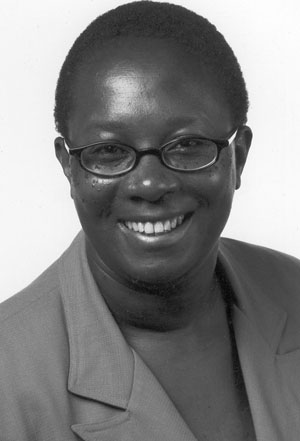Law Society of Upper Canada Bencher Joanne St. Lewis has given up her seat at Convocation to focus on her work in the area of social justice.

St. Lewis announced her departure in an emotional speech at June Convocation, telling a shocked room of benchers that her time at the law society surpassed her expectations.
“I’ve done my best. I’ve enjoyed working with each and every one of you,” said St. Lewis, who later received a standing ovation. “I really want you to understand it’s coming from the centre of what matters to me, and what I wish to do.”
The resignation makes St. Lewis the first bencher to give up her position since December 2001, when Sanda Rodgers stepped down. Coincidentally, it was St. Lewis - who had campaigned unsuccessfully in the 1999 bencher election - who filled that vacancy.
St. Lewis’ replacement had not been determined by press time. Law society rules dictate that the candidate from the previous bencher election who had the most votes without gaining a seat is first in line to fill a vacant spot. If that individual declines, the next person on the list will be asked to do so.
St. Lewis served as chairwoman of the law society’s equity and aboriginal issues committee from 2003 to 2007, and chairwoman of the bicentennial report working group in 2003-2004.
Josée Bouchard, the law society's equity advisor, offered the following comment on St. Lewis: “She brought a passion and a unique perspective to her work, promoting equality and human rights in all her contributions to Convocation.
She was instrumental in building strong partnerships with our stakeholders, with whom the law society shares common interests in supporting members of Francophone, Aboriginal, and equality-seeking communities.
“Joanne's experience of and lifelong commitment to the need for equality informs everything she does, and came to inform her committee and task force work for Convocation. She helped us all to see the implications for equality in everything we do.”
St. Lewis, an assistant professor at the University of Ottawa’s common law faculty, said she wanted to address benchers in Convocation regarding her “very hard decision” to tender her resignation to treasurer Derry Millar.
“When I did that, the initial response of the treasurer was as you would expect: he bent over backwards, spoke to me, asked me about my reasons . . . It’s been a very difficult decision to make,” she said.
St. Lewis candidly admitted it was never part of her plan to become a bencher. But when acting as co-chairwoman of the Canadian Bar Association’s working group on racial equality, she “ran into a snag” and was pushed in that direction.
She said partway through that group’s work, members suggested her efforts amounted to a “dissenting report.”
“They said at the moment they weren’t going to distribute it,” she said.
Shocked by the working group’s reaction, St. Lewis looked at the 1999 bencher election as a forum to distribute her ideas.
“I actually ran with zero expectation of anything but being able to use those campaign statements to speak directly to over 30,000 people about the need to address racial equality issues,” she said.
“To my shock, I actually ranked quite high - so the family name was not dragged in the mud.”
Two years later, St. Lewis received a call from the law society. She was told her name was next on the list to fill a spot at Convocation - spots usually open up only when sitting benchers are appointed judges or retire.
“It has been certainly the most single important thing I’ve done in my career, to become a bencher,” she said. “I have learned so much.”
St. Lewis added that her work at the LSUC has made her a better law professor.
“It means that when I talk about the law society to my students, and when I’m speaking to students about how does the profession see you, as somebody that’s been traditionally excluded, I speak from a position of authority to say, ‘You know what? The profession is concerned about you.
The profession is actually doing substantive, meaningful things to address what you have to offer,’” she said.
“It is an organic, dynamic, and moving thing that you can see, because I’ve been in that space. I’ve been able to contribute to that work, and I’ve found that my work has been welcomed. And I happen to think that is an amazingly important thing for me.”
St. Lewis said she is leaving the law society to focus on her work on social justice issues, specifically in the area of gender equality for African women.
She has also acted as executive director of the Women’s Legal Education and Action Fund, and was special assistant of government affairs to the Grand Chief of the Crees of Quebec.
The law society treasurer thanked St. Lewis for her contribution.
“You have been wonderfully dedicated since your election in 2001,” said Millar.
“I wish that I could have convinced you to stay, but I understand why you feel that you’re leaving. I wish to thank you again on behalf of all of us, and on behalf of the professions in Ontario.”

 St. Lewis announced her departure in an emotional speech at June Convocation, telling a shocked room of benchers that her time at the law society surpassed her expectations.
St. Lewis announced her departure in an emotional speech at June Convocation, telling a shocked room of benchers that her time at the law society surpassed her expectations.